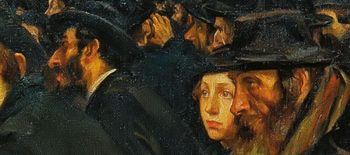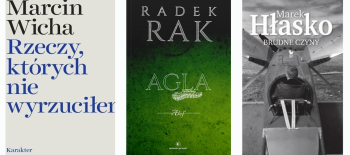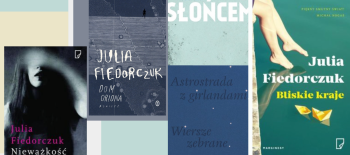Film director Ami (Tadeusz) Drozd discussed the work of Polish national poet Adam Mickiewicz, the famous author of Pan Tadeusz, and how film director Andrzej Wajda created a visual depiction of the poetic work.
“When the film came out in 1999 Polish viewers could opt to see this complex movie, in very outdated Polish, or Titanic,” Drozd explained, “they went to see Pan Tadeusz.”
Asaf Bartov discussed the poetry of Taras Shevchenko and mentioned that he was a serf and, due to his poetic and artistic genius, his friends collected the money so he could buy his freedom from his owner. The harsh life he endured as an orphan was also discussed as well as his complex attitudes to the Jewish minority in Ukraine.
A lively discussion followed with some members of the audience expressing the view Shevchenko as negative to Jews and that the Ukrainian nation, as a whole, is tainted with murderous violence towards Jewish people. Bartov patiently answered the questions and quoted Ze’ev Jabotinsky as a rare example of a Zionist activist who was interested in Ukrainian literature and saw the Ukrainian people as the only factor to stand firm alongside the Jews against Russian xenophobic attitudes.
One member of the audience. Rafi Klein, mentioned his own late father held similar views to those of Jabotinsky and translated Shevchenko to Yiddish in 1937.
=================================================================
On Friday, November 25, guests of the Polish Institute Tel Aviv were taken on a poetic journey stretching from the 19’th century to our own time.
Film director Ami (Tadeusz) Drozd discussed the work of Polish national poet Adam Mickiewicz, the famous author of Pan Tadeusz, and how film director Andrzej Wajda created a visual depiction of the poetic work: “When the film came out in 1999 Polish viewers could opt to see this complex movie, in very outdated Polish, or Titanic,” Drozd explained, “they went to see Pan Tadeusz.”
Asaf Bartov discussed the poetry of Taras Shevchenko and mentioned that he was a serf and, due to his poetic and artistic genius, his friends collected the money so he could buy his freedom from his owner. The harsh life he endured as an orphan was also discussed as well as his complex attitudes to the Jewish minority in Ukraine.
A lively discussion followed with some members of the audience expressing the view Shevchenko as negative to Jews and that the Ukrainian nation, as a whole, is tainted with murderous violence towards Jewish people. Bartov patiently answered the questions and quoted Ze’ev Jabotinsky as a rare example of a Zionist activist who was interested in Ukrainian literature and saw the Ukrainian people as the only factor to stand firm alongside the Jews against Russian xenophobic attitudes.
One member of the audience. Rafi Klein, mentioned his own late father held similar views to those of Jabotinsky and translated Shevchenko to Yiddish in 1937.



